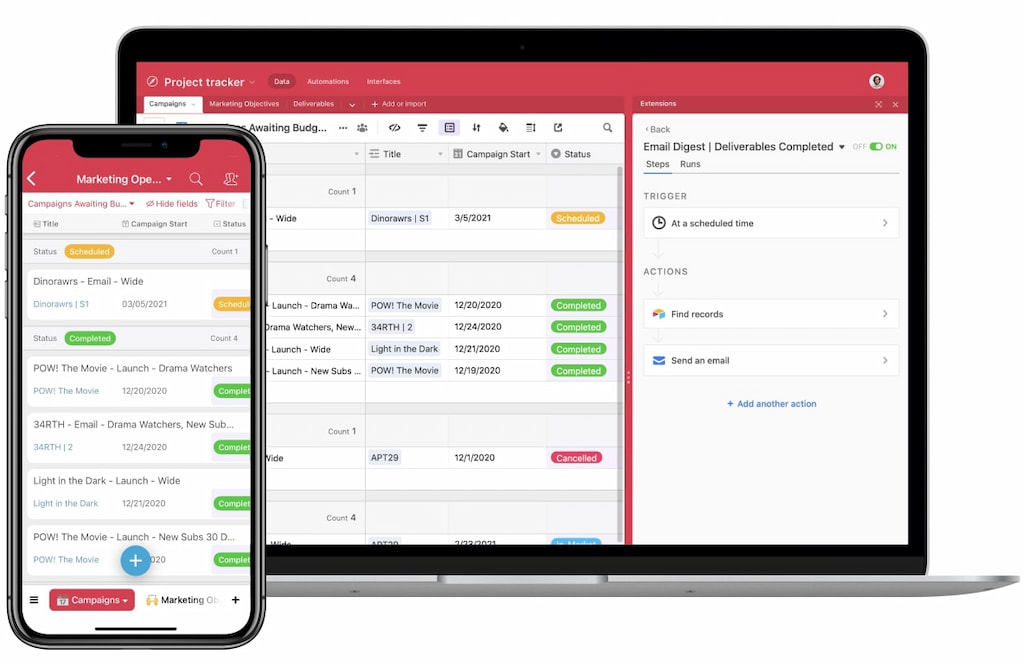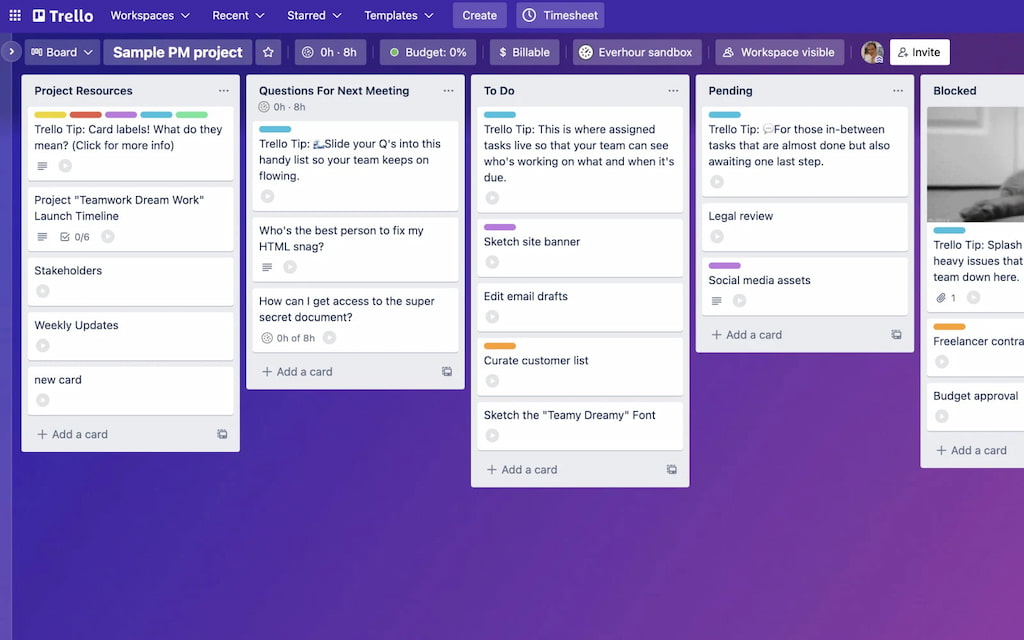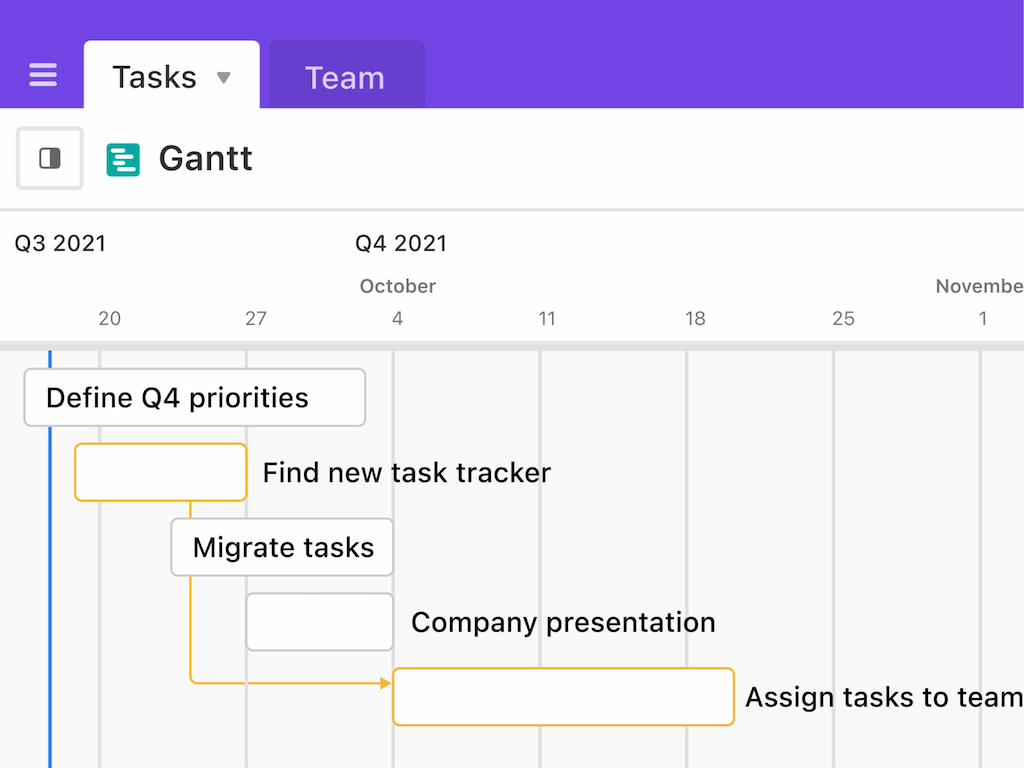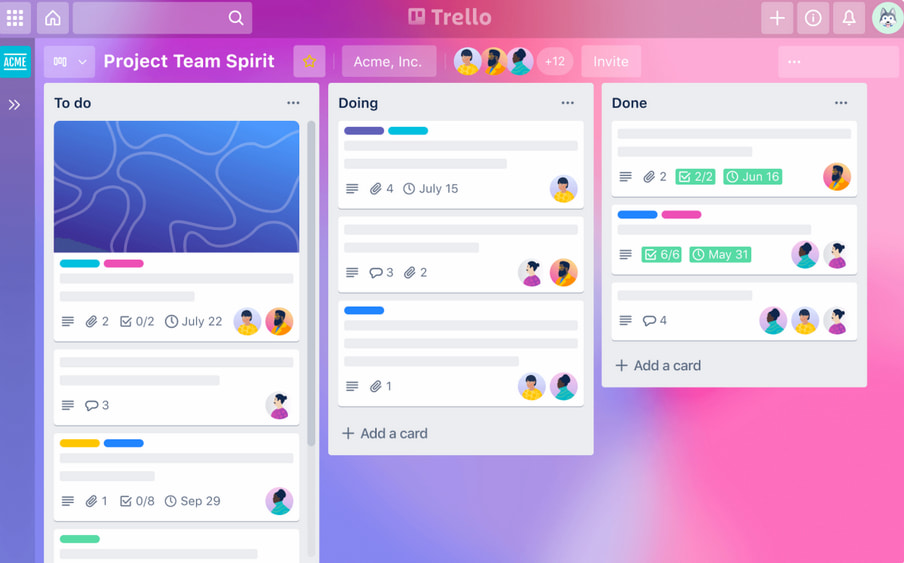Choosing between Airtable vs Trello can be challenging. While both offer visual, flexible workspaces, they serve different needs. Whether you’re after a spreadsheet-style database or a simple Kanban board, this comparison will help you choose the right fit for your workflow.
📊 Airtable vs Trello at a Glance
| Feature | Airtable | Trello |
|---|---|---|
| Best for | Complex, data-heavy workflows | Simplified task and Kanban project management |
| Ease of Use | ⭐⭐⭐ Steep learning curve but highly customizable | ⭐⭐⭐⭐⭐ Easy to learn and use, ideal for beginners |
| Views | Kanban, Gantt, Timeline, Grid, Calendar, Form | Kanban, Calendar, Timeline (Premium only) |
| Automation | Advanced with scripting and interface triggers | Butler automations with easy UI |
| Pricing (Paid Tiers) | Starts at $24/user/month | Starts at $5/user/month |
| Ideal Teams | Product, ops, marketing, enterprise | Freelancers, small teams, agile teams |
🧠 What Is Airtable?
Airtable blends the simplicity of a spreadsheet with the power of a database. It’s ideal for complex projects requiring structured data, multiple views, and no-code automation. You can build CRM systems, editorial calendars, or internal tools using Airtable Interfaces.
Best use cases
- Editorial content planning
- Product roadmapping
- Resource and asset management
- Building internal apps (with Airtable Interfaces or Airtable Cobuilder)

Check out and benefit from a CRM dashboard template!
🧩 What Is Trello?
Trello is a Kanban-style task management tool designed for simplicity. It uses boards, lists, and cards to organize tasks visually. It’s perfect for lightweight project workflows, personal to-dos, or collaborative team task tracking—especially when enhanced with a Trello time tracking integration.
Best use cases
- Content calendars
- Sprint planning for dev teams
- Team to-do lists
- Client project tracking

⚙️ Key Feature Comparison
Project views
Airtable offers 7+ views like:
- Grid (spreadsheet-style)
- Gantt (paid plan)
- Timeline
- Calendar
- Kanban
- Gallery

Trello primarily supports:
- Kanban (core)
- Calendar & Timeline (in Premium)

➡️ Airtable wins for view variety and customization.
Automation & integrations
Both tools offer native and Zapier integrations.
Airtable:
- 35+ native integrations (e.g., Everhour’s Airtable time tracking integration, Salesforce, Slack)
- Advanced automations (triggers + scripts)
- No-code app builder
- Airtable + Zapier = automation powerhouse
Trello:
- Butler automation with UI-based rule builder
- 200+ integrations (including Everhour for Trello time tracking)
- Trello Power-Ups expand functionality (e.g., Jira, Gantt)
➡️ Trello is simpler to use; Airtable is more flexible and advanced.
💸 Pricing Breakdown
| Plan | Airtable | Trello |
|---|---|---|
| Free | Unlimited bases, 1,000 records/base | Up to 10 boards/workspace, unlimited cards |
| Team / Standard | $20/user/month | $5/user/month |
| Business / Premium | $45/user/month | $10/user/month |
| Enterprise | Custom pricing | Starts at $17.50/user/month |
➡️ Trello is significantly cheaper. Airtable’s pricing reflects its robust data and app-building capabilities. Learn more about Trello free vs paid version here!
🔍 Use Case Verdicts
| Use Case | Best Tool |
|---|---|
| Kanban-style task management | ✅ Trello |
| Product & roadmap tracking | ✅ Airtable |
| Internal no-code tools & dashboards | ✅ Airtable |
| Client task boards | ✅ Trello |
| CRM & sales pipelines | ✅ Airtable (with extensions) |
| Project collaboration across departments | 🤝 Tie – depends on complexity |
🏁 Airtable vs Trello: Final Recommendation
Choose Trello if:
- You need a simple, intuitive Kanban tool
- Your team is small and wants to hit the ground running
- Budget is a key concern
Choose Airtable if:
- You manage complex workflows with lots of data
- You want multiple project views and database logic
- You’re building custom internal tools or dashboards
Whichever tool you choose—Airtable for its powerful databases or Trello for its visual simplicity—both can be even more effective when paired with the right integrations. If tracking time is part of your workflow, Everhour’s time tracker works seamlessly with both platforms (for example, for Airtable time tracking). You can monitor time spent on tasks, keep projects on budget, and get real-time insights without switching tabs. Give Everhour a try and make your workday more organized.
🔎 Check out what real users have to say about Everhour:
“The set up is easy. The interface is really intuitive. I love that it integrates with other systems seamlessly and any calls to support have been answered promptly.” [Chris, Capterra]
“I like how easy it is to use. It is quick and painless.” [Jordan, G2]
“Quick customer reports and invoices. Intuitive interfaces for my team to use in time logging.” [Trigg, G2]
Learn more about Trello in our breakdowns of Trello vs Zoho Projects or Trello vs Evernote!

